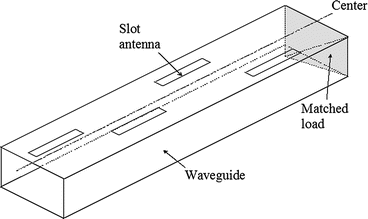Slot Array Antenna Design
Slotted antennas, a complement to dipole antennas, have slots a λ/2 long and a fraction of a wavelength wide. The antenna propagates based on Babinet’s principle of a resonant radiator. The key difference between a dipole and a slotted antenna is the field components are interchanged in orientation. Because of the vertical electric field in horizontal orientation, slot arrays can fit on the surface of moving objects without introducing much aerodynamic drag and wind load. For the same size, slotted waveguide array antennas are more efficient than any other planar antenna. Versatility in slot feeding options, ease of weather-proofing and mechanical stability make slotted antennas well-suited for military and defense applications.
- Waveguide Slot Array Antenna Design
- Waveguide-slot Array Antenna Designs For Low-average-sidelobe Specifications
- Slot Array Antenna Design Software
For radar and communication systems, Eravant, formerly SAGE Millimeter, has developed the SAW-3533532716-28-L2-WR, a slotted waveguide array antenna operating at 35 GHz with 500 MHz bandwidth. The bandwidth can be increased by increasing the slot width, with cross-polarization increasing as a trade-off. The SAW-3533532716-28-L2-WR slot array supports linear, vertically polarized signals with high aperture efficiency and low VSWR. The antenna has 27 dBi gain with a half-power beamwidth of 16 degrees in the E-plane and 2 degrees in the H-plane. A radome of LEXAN polycarbonate makes the antenna suitable for outdoor applications. Its 1 lb. weight and small size - measuring 11.84 in. x 3.85 in. and just 0.93 in. thick - eases mounting and minimizes the dynamic load to the overall structure. A groove for an O-ring in the standard WR28 waveguide flange (UG-599/U) pressure seals the connecting interface. Integrating the antenna with a T/R diplexer, a dual channel I/Q receiver and an oscillator makes a complete package for many system applications, such as traffic management, law enforcement, communications and military surveillance.
If the waveguide slot antenna is designed in this manner, then all of the slots can be viewed as being in parallel. Hence, the input admittance and input impedance for an N element slotted array can be quickly calculated: The input impedance of the waveguide is a function of the slot impedance. Read 5 answers by scientists with 1 recommendation from their colleagues to the question asked by Arash Arsanjani on May 6, 2019.
Waveguide Slot Array Antenna Design

The slot array antennas offered by Eravant span WR90 to WR10 and are designed with MIL-F-3922 designated standard flanges as the microwave connector interface.

Waveguide-slot Array Antenna Designs For Low-average-sidelobe Specifications
Eravant, formerly
SAGE Millimeter
Torrance, Calif.
www.eravant.com
Slot Array Antenna Design Software
- Slot antennas in waveguides provide an economical way of the design of antenna arrays. The position, shape and orientation of the slots will determine how (or if) they radiate. Figure 3 shows a rectangular waveguide with a drawn with red lines snapshot of the schematic current distribution in the waveguide walls.
- The slot antenna, consisting of a narrow slit in a ground plane, is a very versatile antenna. With modification, it is amenable to waveguide, coplanar waveguide (CPW), coaxial, slot line, or microstrip feeding schemes and has been used in all aspects of wireless and radar applications.
- Slot antennas are designed to work like a resonant radiator. This principle likens the slot antenna to a dipole. The main difference is that a dipole antenna has vertical and horizontal fields whereas a slot antenna has a rotated polarization. Pros of Slot Antennas.